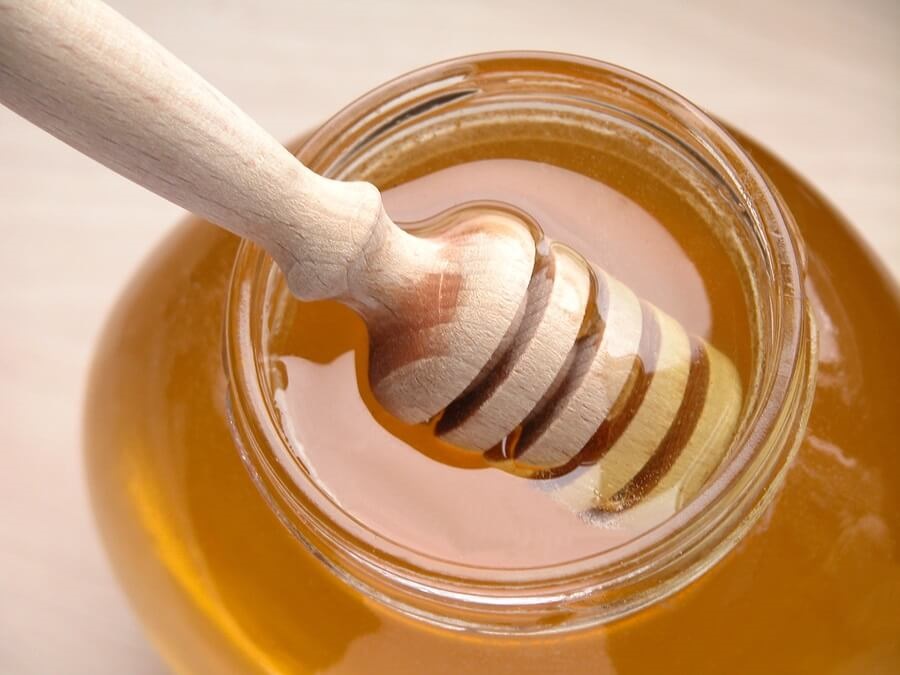
Honey

Honey
Infants under the age of one should not be fed any form of honey (raw, baked, or cooked). Honey is bad for babies because it can harbor Clostridium botulinum, which can produce botulinum spores. These spores secrete toxins that can lead to muscle weakness, poor sucking, a weak cry, constipation, decreased muscle tone, and even paralysis in young infants. An infant’s intestinal track isn’t strong enough to fight off these spores and toxins.
Cow’s Milk

Cow’s Milk
Stick to breast milk or formula until your child’s first birthday. A child under the age of one can’t digest the enzymes and proteins in cow’s milk, and certain minerals in it can cause damage to your baby’s kidneys. Also, unlike breast milk or formula, cow’s milk doesn’t provide all the proper nutrients for a growing infant.
Egg Whites

Egg Whites
Don’t feed egg products to a child under the age of one, to avoid an allergic reaction or allergies in the future. While the proteins in egg yolks are seldom a source of allergens, the proteins in eggs whites may cause allergic reactions. By the age of five a child normally outgrows the potential for an allergic reaction to egg whites.
Citrus

Citrus
Avoid feeding citrus fruits and juices to baby for the first couple of months. These foods are high in Vitamin C and acid, which can cause an upset tummy and/or acid reflux in your baby.
Seafood/Shellfish

Seafood/Shellfish
Another potential allergen for babies is seafood, and particularly shellfish. Talk to your pediatrician before feeding your baby boneless fish — even tuna. Do not give any sort of shellfish (such as shrimp, clams, or crabmeat) to baby.
Wheat

Wheat
Due to allergens in wheat, it is best to wait until your baby is one, two, or even three years old before introducing it into your baby’s diet. If you have checked with your pediatrician and are sure that your baby hasn’t had an allergic reaction to rice, oats, or barley, you may try introducing wheat at the age of eight or nine months.
Large Chunks of Food

Large Chunks of Food
It is widely recommended that you feed your child breast milk or formula for the first four to six months. Once you start baby on solids, pea-sized foods are safest, to prevent choking. Make sure that vegetables are diced and cooked up soft, and cut fruits into quarters to avoid their getting stuck in your child’s throat. Meats and cheese should also be cut into very small pieces, or shredded.
Soft Foods

Soft Foods
Foods like jellies, marshmallows, and any other sort of soft food should not be given to a baby. These foods can easily lodge in a baby’s throat.
Small, Hard Foods

Small, Hard Foods
Foods like nuts, popcorn, whole grapes, raw vegetables, raisins, candies, dried fruits, seeds, or any other small, hard food should not be given to a baby. They are all choking hazards and can easily become lodged in your baby’s throat. Any food you give your baby should be diced into small bits and cooked until soft.
What About Peanut Butter?

What About Peanut Butter?
Experts previously believed that introducing peanut butter or any sort of nut product at an early age could lead to nut allergies. But new research in 2015 found that introducing babies to nut products may actually lower their risk for a peanut or nut allergy. The AAP recommends talking with your pediatrician about introducing nut products to your baby, once he is eating solid foods. If your baby doesn’t have any food allergies or risk factors, your doctor will probably advise feeding him a thin layer of creamy (not chunky) peanut butter on a cracker or bread, or foods that have peanut butter in them. Never give whole peanuts or nut pieces to a child under age 4 because of the choking risk.
If your child is at high risk for a peanut allergy or other food allergies (because of a family history or if he has an existing food allergy or eczema), your doctor might recommend doing allergy testing before introducing nut products, or feeding your child nut products at the doctor’s office in case of an allergic reaction.





